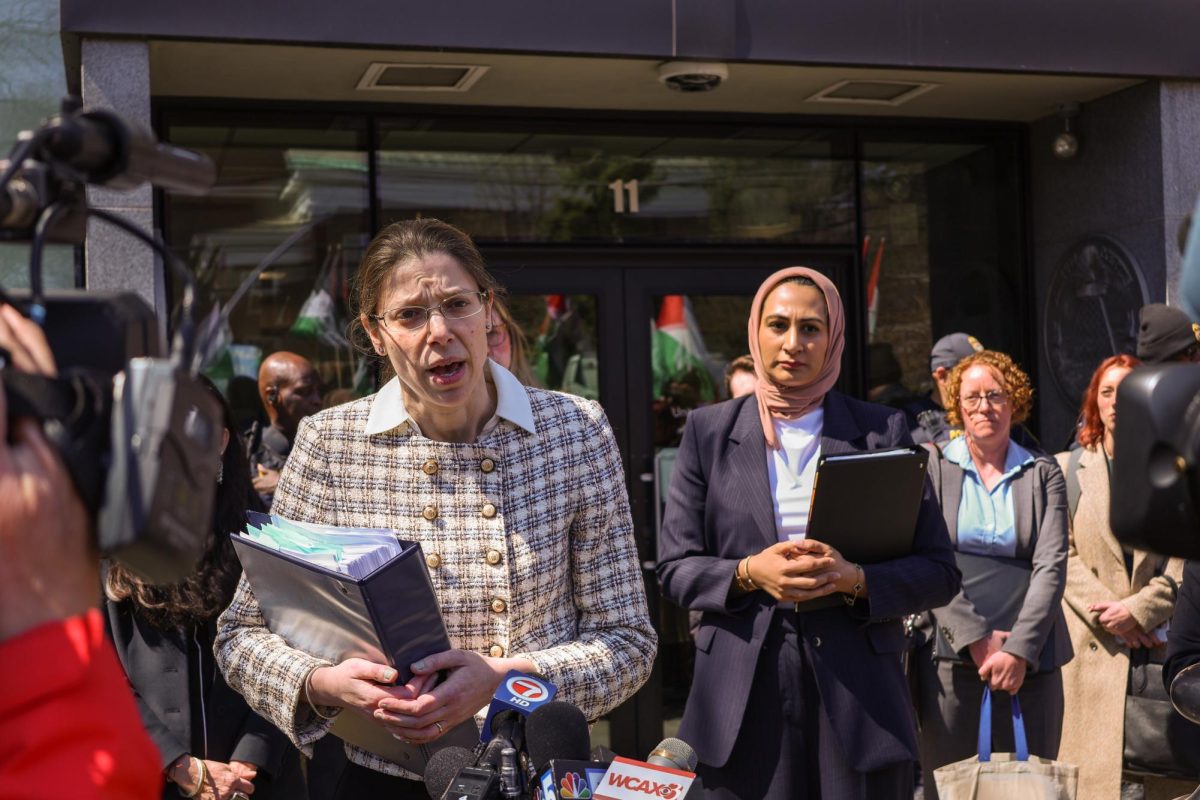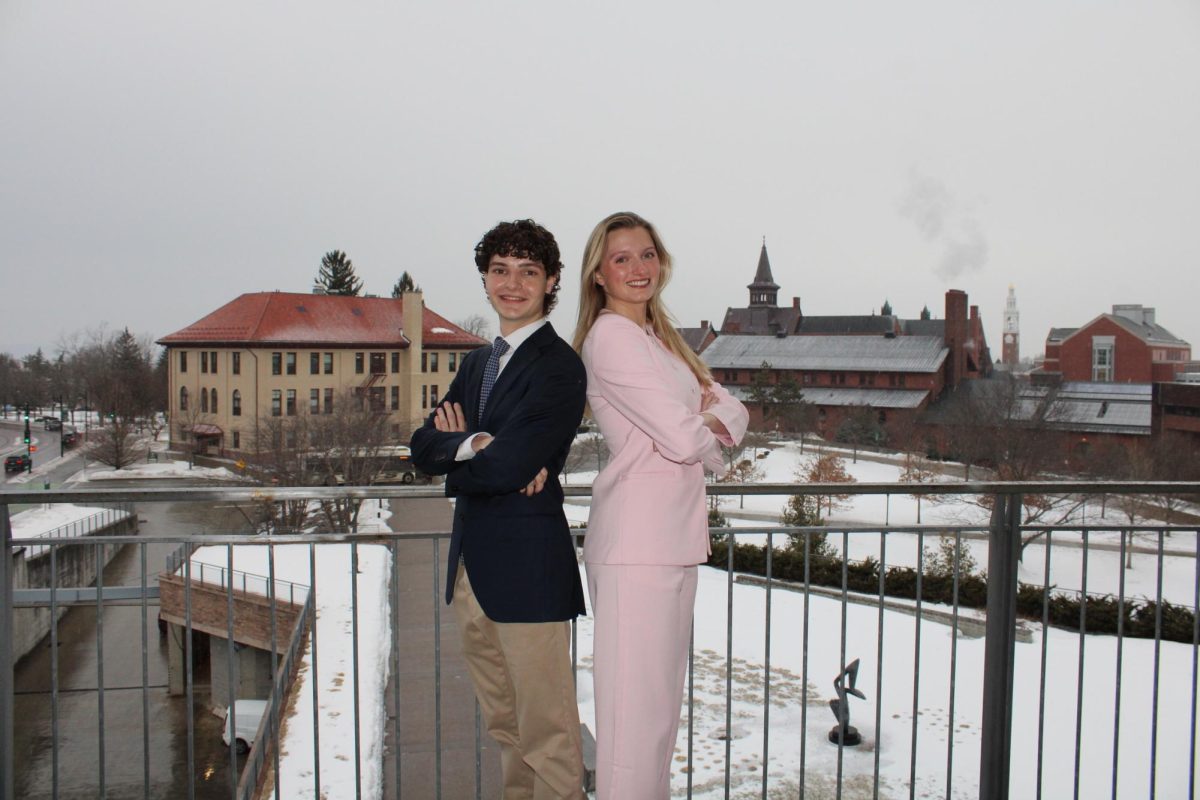Members of the UVM community rallied in front of the Vermont District Court in Burlington on Monday, April 14, to protest the detainment of Rümeysa Öztürk and support her legal team while the hearing was ongoing inside.
The hearing came after Öztürk, a Tufts University doctoral student, was detained in Boston by masked Immigration and Customs Enforcement officers in late March despite having committed no crime.
She was transported to St. Albans, Vermont, before being sent to a prison in Louisiana.
Öztürk authored an op-ed published in The Tufts Daily, the university’s student newspaper, calling on the institution to “acknowledge the Palestinian genocide, apologize for University President Sunil Kumar’s statements, disclose its investments and divest from companies with direct or indirect ties to Israel.”
Her legal team has floated this piece as a possible motive behind her detainment.
On April 18, Vermont District Court Judge William K. Sessions III ruled that Öztürk should be held and tried in Vermont, ordering that she be transferred from the Louisiana prison where she currently resides.
On April 23, Michael Drescher, the U.S. Attorney of Vermont, appealed Sessions’ decision. The next day, Sessions doubled down on his request that Öztürk be returned on the basis that the appeal’s reasoning was recycled from the government’s argument during the hearing.
Ellen Kaye, co-president of UVM Staff United, was in attendance to support Öztürk, who is also a university employee and union member, albeit in Massachusetts’ Service Employees Local Union 509.
“It should be chilling for anybody on a university campus right now,” she said. “No matter where you stand on Palestine, you ought to be very, very concerned and ready to act about this.”
Kaye helped lead a February protest in UVM’s Davis Student Center, during which the four UVM unions called on the University to release strict guidelines.
“We’ve been lucky, nothing we know of has happened [at UVM],” she said at the Öztürk protest. “But when it does, we want the University to be ready and to be proactive. We want to make sure that this never happens to anybody at UVM.”
Senior Mahder Teferra, former SGA President, said she was troubled by Öztürk’s detainment because she believes in the right to demonstration.
“It’s only right to stand in solidarity while we have the power to,” she said. “It’s very scary to be living in a country where, you know, anyone’s rights can be taken away, legal status or not.”
Teferra said she would like to see UVM declare itself a sanctuary school, meaning it would vow to protect undocumented students from federal immigration enforcement.
“Administration has said that they’re not really changing their protections of students or policies until someone comes here and tells them to or until we’re directly affected,” Teferra said. “I do think it’s important to have precautions in place, and some progress has been made in communicating what students’ rights are and what resources they have.”
Wafic Faour, a community activist from the Vermont Coalition for Palestine, said Sessions’ decision would determine whether the Vermont District Court would protect the First Amendment.
“Rümeysa wasn’t an activist, she’s just a student,” Faour said. “I’m afraid for UVM students. I’m afraid those forces, those guys, will come to campus to arrest Palestinian, Muslim, Arab students.”
Cynthia, a Middlesex, Vermont resident and Tufts alum at the protest who declined to share her last name, said she was upset by the arrest near her old campus.
“I saw the film of her being abducted by the ICE people, and it’s just like a knife in my back,” she said. “To think that’s happening in the neighborhoods I used to live in, it’s unbelievable.”
A sophomore representative from Students for Justice in Palestine, who wished to remain anonymous, said the Öztürk arrest was the Trump administration sending a message to Palestinian activists to stop their activities.
“This sends a message to everyone on every campus across the country that they need to be quiet, stay down and shut up,” he said. “I think that’s why it’s so important to come out to stuff like this, to just say, ‘No, we’re not doing that.’ ”
Jessie Rossman, an ACLU lawyer representing Öztürk, said after the hearing’s conclusion that her client’s detainment was an example of unusual immigration enforcement and “part of a policy of punishment because of their protected speech.”
“Every single step in this case is a step forward to making sure that Rümeysa ultimately gets released and gets to return to her community in Tufts,” Rossman said. “This is harming not just Rumeysa, but the entire community at Tufts, which is really feeling her absence. They need her home.”










